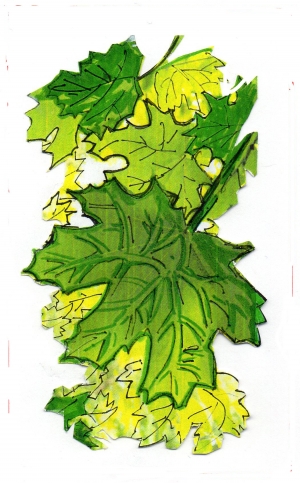
The Future of the Scots Language
2022 marks the fiftieth anniversary of the founding of the Scots Language Society, set up to encourage and promote the use of Scots Language. In 2021 a Scottish Parliament Cross Party Group was reconvened in order to advise the Scottish Government on ways of taking Scots forward. It is worth considering not only how this might be achieved, but to look at attitudes toward Scots and how they have changed during the last fifty years.
Re-reading David Purves “A Scots Grammar - Scots Grammar and Usage’, published by The Saltire Society in 1997, though full of facts, knowledge and examples of Scots as it is, I was struck by how much it has dated in less than three decades. Purvis was a notable spokesman and advocate for Scots. Though I was impressed at the time I feel now that “A Scots Grammar” represents a miss-step in terms of the way we think about Scots Language and languages in general. David Purves was a hard-working editor of Lallans, the magazine of the Scots Language Society, who put in much time and effort on behalf of the auld leid. It may seem harsh to criticize his book when he is no longer around to defend himself but now is a good time to take stock.
In “A Scots Grammar” Purves tries to establish a case for a form of “correct” or “pure” Scots that he can base his system of grammatical rules on. This is an unhelpful inversion but one that is typical of an academic approach. He argues that the grammars of all languages are based on their national literatures – the language, he claims, represented in its highest form. He is, in effect, implying that languages derive their identity from their literature. This is not the case. They derive it from their speakers, the people.
In the book, Purves suggests that following the Union of the Crowns and then the Parliaments, Scots lost its status as a national language. This has been oft repeated, along with other historical explanations such as the effect of the Reformation and the unionist-supporting Uncle Tams of the Enlightenment. It is true to an extent of course, but more so if you place greater credence in crowns, parliaments, philosophers and kirks. The fact that Scots has survived as a spoken and written medium since 1707 is because it has continued to enjoy the support (or authority, for want of a better word) of the majority of the folk who have never let it go.
This is not wishful thinking. As far as the establishment has been concerned, Scots has been dying out now for over three hundred years, even though members of that very same establishment who attack it have continued to use it. Burns believed this to be the case and it motivated him, not only to preserve, but to create a completely new body of folksong. Burns actually came on the scene at the end of a renaissance rather than a decline. But in the everyday context of the factories, fields, shops, playgrounds, pubs and homes, Scots has aye been thrang.
Hamish Henderson got this, but MacDiarmid didn’t. Purves doesn’t really get it either. For him, it is about the restoration of an older tongue back to its former days of courtly prestige and royal patronage. But such authority tends to take little notice of the list of places I mentioned in the above paragraph. “Establishment” is a vague and pejorative term to use in itself but it includes all “the Gaffers”: the gentry, landowners, academics, educationalists, and all those in authority charged with running the North British reservation. And Scots is often not spoken when the Gaffers are around so naturally, they have assumed that it is the tongue of a shrinking, cap-doffing minority.
Ironically, in providing examples of ways in which Scots differs from English, Purves gives many examples taken from his own Borders dialect area, but he is less generous in his comments toward other regional dialects of Scots, inferring that they exist only as corrupted survivals from pre 1600 (excluding Kelso!). Anything that is newer and urban he classes as demotic. He is particularly dismissive of the working-class speech of Glasgow which he quotes examples from and highlights as not being Scots and also labels as ‘bad” English.
None of this makes sense, however it is easy to see why he is doing it. In order to justify and defend Scots as being a language in its own right, especially against the perceived threat of extinction from English, he feels obliged to “fix” it as a kind of unchanging model with lots of rules that can be learned and taught by rote. Doing this proves not only that it exists but it makes it much easier to prescribe and own. His grammar of Scots is predicated on the notion that the Scots grammar rules are different from the English grammar rules, but he is still in thrall to the English model in his approach. The demonstrative pronouns are different and the verbs more irregular from English so Scots must be a language like English is, he tells us.
This lack of linguistic self-confidence and hang up with English holds back the development of Scots to this day. Endless arguments about “correct” spellings and attempts to make each and every syllable look as different as possible from an English equivalent not only deter those interested in taking Scots up but take us far away from the bruckle beauty o the leid. A further aspect of this academic approach and emphasis has resulted in far too much importance being placed on owersetting or importing other literatures into Scots. Not a harmful or bad thing in itself but something that is far easier to do than attempting to be genuinely creative in your own language with the aim of producing new work that stands with the best internationally.
As the late Tom Leonard put it in his put-down poster poem “Makar’s Society”:
Gran meetin’
The nicht
Tae decide the
Spellin’
O’ this poster
And the admission price is thritty pee (a heid).
Purves is attempting to take possession of Scots, to put a fence around it. But as Tom Leonard also wrote, all living language is sacred, it carries a heavy responsibility to communicate truth and therefore must not be twisted or appropriated in this way. Especially so in our contemporary world of “alternative facts”, fake news and internet conspiracy theories.
A better way of thinking about it might have been to try to demonstrate how our language, our syntax, our word choices reflect the way we perceive ourselves and our existence within our environment – our culture, history, people, landscape. A kind of psychic or karmic grammar if you like. A much harder thing to do. All languages right down to idiolects are unique. They represent who we are. To mock or seek to undermine linguistic expression is to deny identity. Orwell knew this.
Languages die out in time. Their survival depends on whether they are used or not. We know that all language is organic and in a continual state of flux. Languages wane and wax. As I write, dialects are becoming languages and vice versa. You can say that a language is a dialect with an army and navy. You can say what you like. People usually think that the medium they use to fill in their tax forms in is the “official” language.
Some of this is based on geo-political influences. To give one example, Norwegian (Norsk) has become stronger and more widely used over the last hundred years since the country gained its independence. But there are no such things as “rules”, only conventions of speech and writing that are perpetually changing, morphing, adapting. Of all people, authors and poets are continually tinkering, bending and breaking convention in order to create new forms. So to try to fix a centralized model derived from a literature, especially an older one divorced from common speech, is plain daft. Nor can it be forced retrospectively against the will of people. But the fact that Scots has retained a strong and living identity over a number of centuries, against constant attempts to marginalize it and belittle it, tells you that it has something of a powerful hold in our heads and hearts.
We may not speak in the iambic pentameters of Drummond of Hawthornden when we meet wi our drouthy neebors at the pub. And neither do our English neighbours speak in the language of the sonnets of Shakespeare in theirs. But colloquial Scots is used every day by hundreds of thousands and in millions of social contexts.
David Purves was wrong because he suggested that there was good Scots and bad Scots. It is all good Scots. And as usual in these cases he was the self-appointed judge and jury. The usual cultural elitism prevailed. But he was also a man of his time – by now, some of his views may have changed. For over three centuries, Scots has been in an unusual but not unique situation for a language under threat from a colonialist education system and social conditioning. Today, we could either be at the end o an auld sang or the stert o a new reel. I believe much depends on how we approach it and how external factors effect it but I am hopeful.

